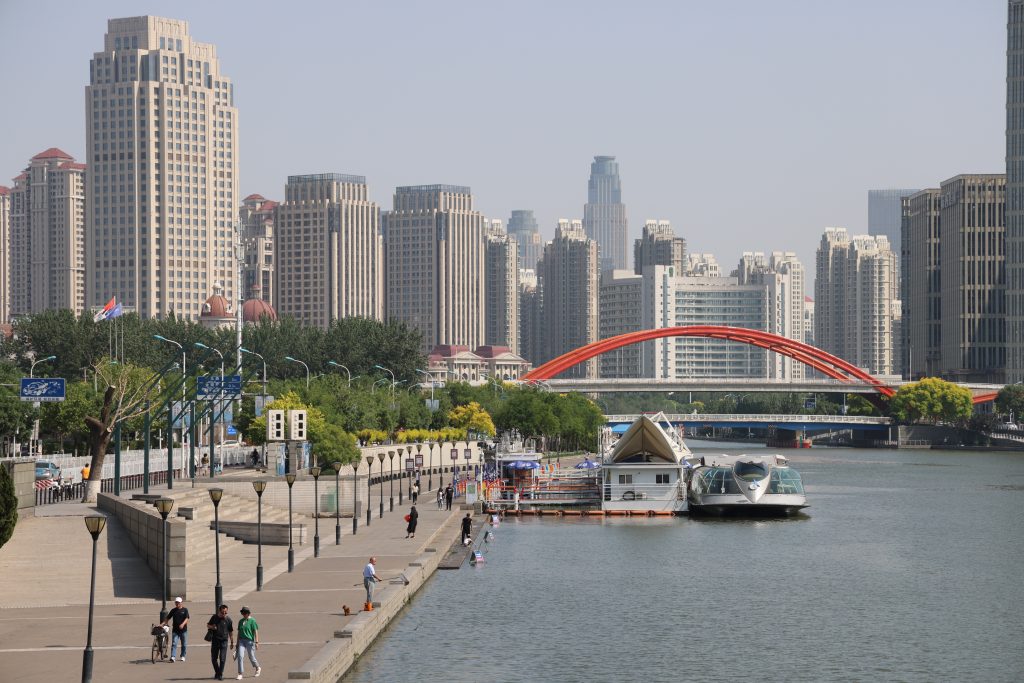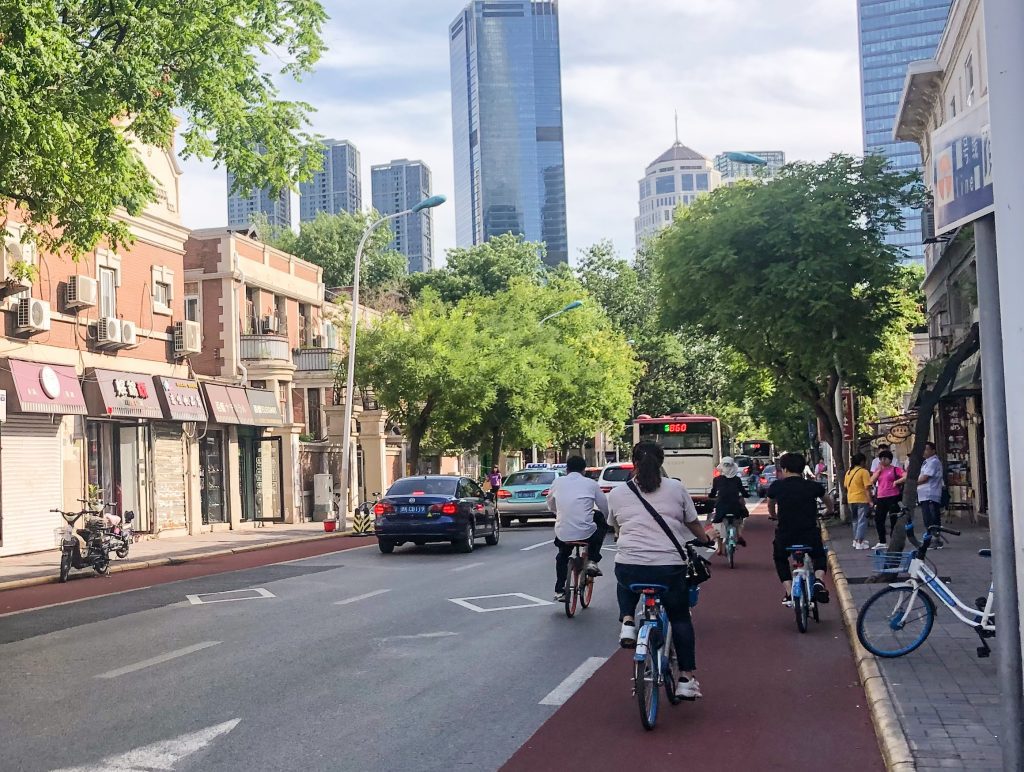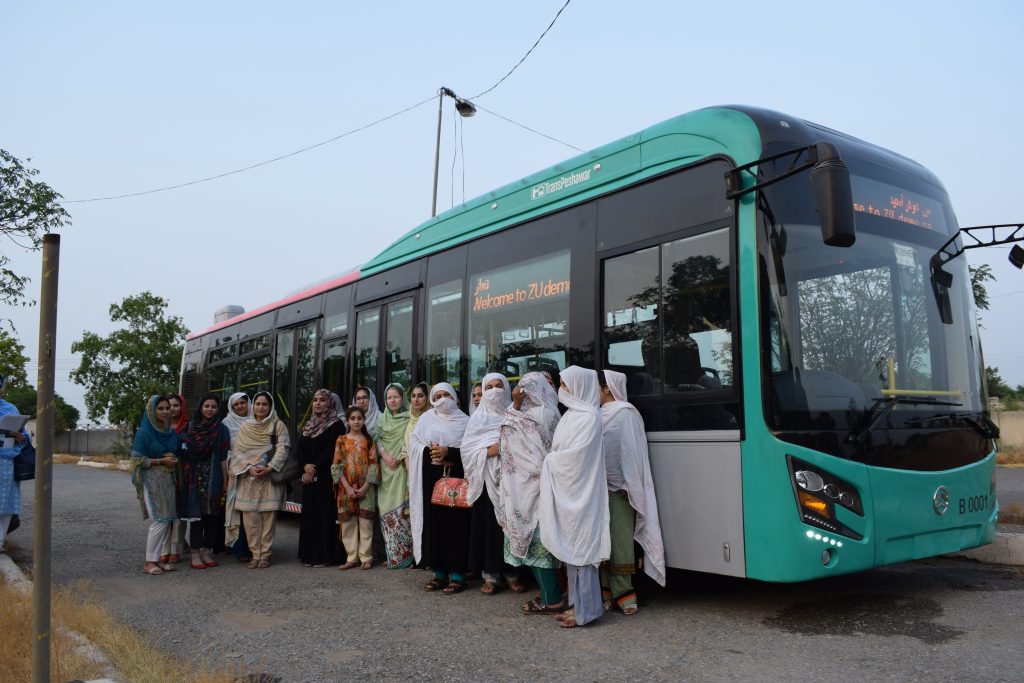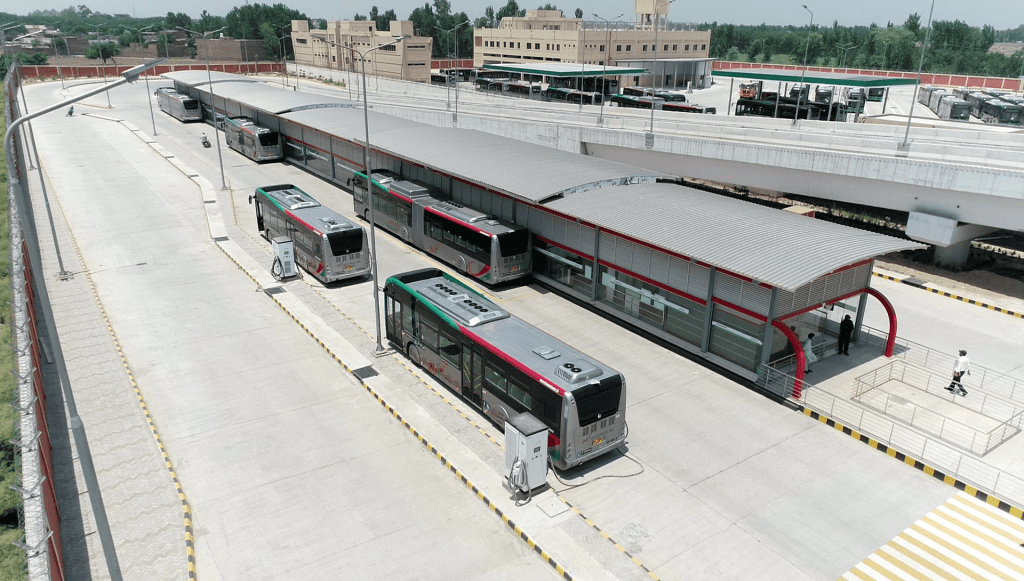The Institute for Transportation and Development Policy (ITDP) and the Sustainable Transport Award Committee are proud to announce Tianjin, China, as the winner of the 2024 Sustainable Transport Award (STA). Tianjin will receive the award in a live broadcast ceremony held on 7 February 2024, and the City will join in the STA’s Sustainable Transport Award Series programming throughout the year. This honor recognizes the city’s progress over the past year in improving its transport and development models with policies that promote sustainability, accessibility, and inclusion.
The STA program is excited to recognize Tianjin for the city’s collaborative efforts to expand non-motorized transport (NMT) and street infrastructure that enhances the quality of walking and cycling connections to public transport. According to Climate Watch, China’s transport-related greenhouse gas (GHG) emissions alone account for 11% of all transport-related emissions, second only to the United States. One of the country’s most populated cities, Tianjin is home to more than 13 million people. The city’s recent investments into sustainable mobility policy and infrastructure have the potential to serve as a model for the rest of China as it works towards achieving carbon neutrality by 2060.

Over the past year, Tianjin has improved access to around 96 metro stations with enhancements to walking, biking, and bus networks. This project implemented intersection improvements and connected facilities such as bike parking, bus terminals, green landscaping, and more. The city also developed a new bus terminal with off-street vertical bus parking to serve up to seven bus routes. An impressive network of 190 roads totaling 132 kilometers also received streetscape improvements prioritizing walking and cycling. Improvements included pavement updates, drainage improvements, and the redesign of street layouts to better separate NMT modes from motor vehicles. Facilities for more active mobility, including bike parking, sidewalk guardrails, and improved street lighting, were also implemented on many city roads.
In addition, nearly 216,000 square meters of bike lanes were repaved with polymer for clear separation, with 82.4 kilometers of rails installed to separate lanes. Over 605,000 square meters of pedestrian sidewalk networks were repaired or constructed sidewalk with more than 3,500 street-level trees and over 280 street lights newly installed. The significance of the project is immense—thus far, it is the largest project supported by the World Bank (by USD$ value and quantity of infrastructure delivered) dedicated to improving streets for walking, cycling, public transport, and green space.

Tianjin’s impressive efforts have also influenced both local and national policy in China. The findings from the city’s studies, processes, and interventions over the past year and a half—notably under COVID-19 pandemic restrictions—have informed the design of national pedestrian and bicycle planning standards. These impacts are already shifting local commuting behaviors: the modal share for walking, biking, and public transport together grew to more than 70% of the total transport mode share in Tianjin in 2022. This supports the city’s broader aims of becoming a model for low-carbon and green urban development for other regions working to reshape and rethink their car-focused environments. The STA proudly recognizes Tianjin as the 2024 winner for these commitments and visionary actions.
Tianjin is joined by one STA honorable mention this year: the City of Peshawar, Pakistan.
In the past year, the City of Peshawar and its transport authority, TransPeshawar, implemented an innovative Bus Industry Restructuring Program (BIRP), which involved off-boarding more than 500 outdated and fuel-intensive public transport vehicles and replacing them with clean technology vehicles to facilitate a smooth industry transition. The BIRP initiative is part of a wider effort in Peshawar to improve air quality and reduce greenhouse emissions across the city by focusing on road and passenger transport impacts.

Peshawar was previously recognized as an STA honorable mention in 2022 for their work on Zu Peshawar, the first Gold Standard BRT on the Indian Peninsula, which has placed a notable focus on providing access to vulnerable and marginalized communities, including women, persons with disabilities, and children.

“This year’s winner and honorable mention have demonstrated an amazing dedication to sustainable mobility and public space,” said ITDP CEO Heather Thompson. “Coming out of the pandemic, both Tianjin and Peshawar are working to make sure that they are truly remaking their built environments and transport systems into people-oriented spaces where accessibility, comfort, community, and the climate all come first.”

